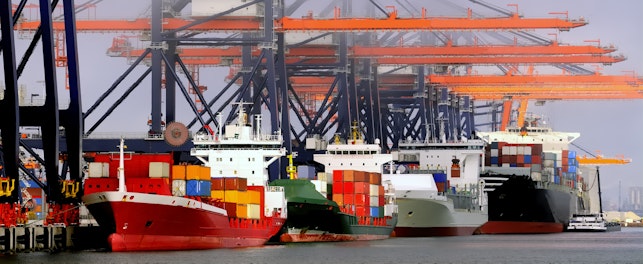The East African Community (EAC) is one of Africa’s fastest-growing regions, driven by a large population, accelerating reforms, significant infrastructure investment and deepening regional integration. Through EAC-Ready certification, exporters can ensure alignment with East African Standards (EAS), simplifying and accelerating market access.
With a population of around 330 million people and a combined GDP of nearly USD 313 billion, the EAC comprises eight countries – Burundi, Democratic Republic of the Congo (DRC), Kenya, Rwanda, Somalia, South Sudan, Tanzania and Uganda. It is increasingly recognized not only as a trade bloc but as a strategic growth zone, making it one of Africa’s most rapidly expanding sub-regions.
Led by Kenya, East Africa's largest economy, the EAC recorded a strong real GDP growth rate of 5.4% in 2024, with projections rising to 5.7% in 2025. Top-performing economies included Rwanda (7.0%), Tanzania (6.1%), Burundi (6.0%), Uganda (5.7%) and the DRC (4.7%). These growth rates are driven by coordinated economic policies, enhanced cross-border trade facilitation and the ongoing implementation of the EAC Common Market Protocol.
EAC member states have demonstrated a strong capacity to enforce product quality and safety through:
- Conducting quality inspections at ports of entry
- Requiring certificates of compliance (CoCs) before market entry
- Removing non-compliant or unsafe imports from circulation
- Enforcing both national and harmonized regional standards
These efforts reflect the region’s commitment to consumer protection and market integrity, reinforcing its position as a trusted and rising trade hub in Africa.
20 years of compliance expertise
We have been operating in the East African region for nearly 20 years and are recognized as a consistent, trusted provider of pre-shipment verification of conformity (PVoC) services. PVoC programs, implemented by several EAC member states, ensure that imported products meet applicable national and regional standards before entering local markets.
EAC-Ready certification
To support exporters, we have developed the EAC-Ready product certification scheme, helping companies align with EAS and streamline entry into the region’s markets.
Exporting to East Africa can be complex due to varying regulatory requirements across member states. EAC-Ready certification bridges this gap by offering a unified framework aligned with EAS, giving exporters clarity and confidence in meeting compliance expectations.
Under this voluntary scheme, certified products are recognized as conforming to relevant EAS, providing a structured and efficient path into the region. While EAC-Ready certification does not replace national PVoC programs, it serves as a complementary strategy, simplifying multi-country compliance.
Companies can leverage EAC-Ready to reduce re-testing costs, minimize documentation errors and accelerate shipping and customs clearance. Early alignment with the scheme provides a competitive edge and builds long-term trust with both regulators and consumers across one of Africa’s fastest-growing regions.
Benefits of EAC-Ready certification
For companies pursuing sustainable growth in Africa, EAC-Ready offers a cost-effective solution with tangible time and resource savings. Key benefits include:
- Commercial advantage – promote products that demonstrate early conformity to EAS, gaining visibility with importers ahead of competitors
- Save time and money – certified products are more likely to obtain a Statement of License (SoL) quickly under PVoC, enabling faster CoC issuance and resolving issues before shipping
- Stress-free certification – conducted independently of shipments, allowing manufacturers to address issues in advance and avoid last-minute delays
- Boost confidence – builds trust with regulators and consumers
- Increase brand visibility – showcase compliance through the EAC-Ready mark, making products easily identifiable as reliable and safe
Accredited product certification
The EAC-Ready scheme complies with the ISO/IEC 17065:2012 standard. We are accredited as a product certification body by the GCC Accreditation Center (GAC) and the Philippine Accreditation Bureau (PAB-Philippines), both of which are members and signatories of the International Accreditation Forum (IAF).
For more information on obtaining EAC-Ready certification, please contact our expert below. We will be happy to arrange a meeting to discuss your specific needs and support your entry into East African markets.
Learn more about EAC-Ready Certification.
Frequently asked questions
Can EAC-Ready certification be used across the entire EAC region?
Not entirely. While EAC-Ready supports entry into EAC countries with active PVoC programs, such as Kenya, Uganda, Tanzania and South Sudan, a separate SoL is still required for each market. However, the documentation and testing conducted under EAC-Ready can be reused, significantly reducing processing time and administrative burden for repeated shipments.
Can wholesalers or distributors apply for EAC-Ready certification?
No. The EAC-Ready scheme is designed for brand owners and manufacturers, as it requires factory audits to assess quality management systems. Wholesalers and distributors may not apply directly, but they can coordinate with manufacturers to initiate the certification process on their behalf.
Does EAC-Ready replace national certification schemes like Kenya’s Diamond Mark?
No. National marks, such as Kenya’s Diamond Mark (D-Mark), are administered solely by national authorities, like the Kenya Bureau of Standards (KEBS). However, the EAC-Ready certification process, through pre-testing and factory audits, helps companies identify and correct potential non-conformities, improving their chances of passing national certification assessments on the first attempt.
This article can also be found in our PCA Newsletter (Q3/2025), which keeps you up to date with developments in technical barriers to trade and product conformity assessment.
Read more PCA articles (Q3/2025)
- Streamlining Food Export Compliance Procedures for Saudi Arabia
- Importing into Kenya? New Rules for Product Inspections and Compliance
- UNBS Launches New e-Portal to Accelerate Clearance of Imported Goods
- New PCA Agreement with Ivory Coast Reinforces Commitment to Trade Compliance and Product Integrity
You can read more articles in our previous editions in the PCA Newsletter Library.
© SGS Société Générale de Surveillance SA.
16th Floor, Block A, No.73 Fucheng Road, Century Yuhui Mansion,
Beijing, Haidian District, China





